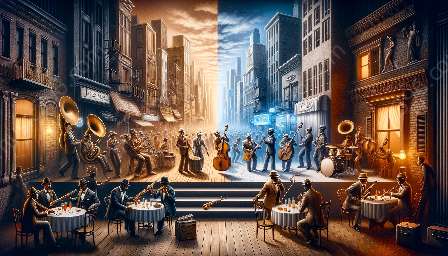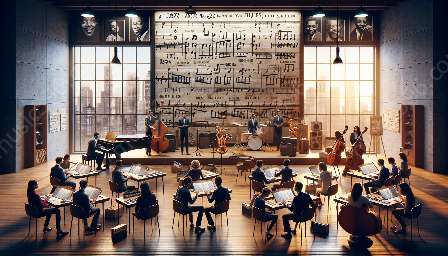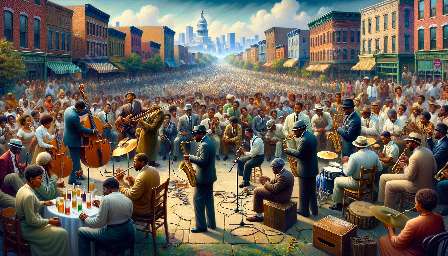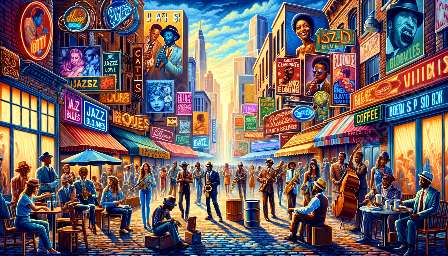Role of Jazz and Blues in African American Culture
Jazz and blues have deep roots in African American culture, playing a significant role in shaping the cultural identity and history of the African American community. These musical genres emerged as unique forms of expression that reflected the experiences, struggles, and triumphs of African Americans throughout history. From the spirituals and work songs of the slavery era to the innovative sounds of the Harlem Renaissance and beyond, jazz and blues have served as powerful and poignant artistic reflections of African American life.
One of the key aspects of the role of jazz and blues in African American culture is their function as modes of storytelling and communal expression. These musical traditions have provided a platform for African Americans to share their narratives, channel their emotions, and celebrate their cultural heritage. By incorporating elements of African musical styles, spirituals, and the blues, jazz and blues artists have created a rich tapestry of sounds that resonate with the experiences of the African American community.
Moreover, jazz and blues have been instrumental in shaping the social and political landscape of African American culture. During the civil rights movement, for example, jazz and blues music served as a unifying force, offering a platform for activists and artists to communicate messages of freedom, equality, and empowerment. From iconic figures like Billie Holiday to the influential jazz ensembles of the 1960s, these musical genres became anthems of resilience and solidarity for the African American community.
Overall, the role of jazz and blues in African American culture is multifaceted, encompassing artistic expression, cultural preservation, and social transformation. These genres have not only shaped the musical landscape but have also contributed to the broader narrative of African American history and identity.
Promoting Intercultural Dialogue and Understanding through Jazz and Blues
Jazz and blues have transcended cultural boundaries, serving as powerful catalysts for promoting intercultural dialogue and understanding. These musical genres have the unique ability to bridge diverse communities, facilitate cross-cultural exchanges, and foster a sense of shared humanity. Through their universal themes and emotional resonance, jazz and blues have become vehicles for promoting empathy, tolerance, and appreciation of cultural diversity.
One of the ways in which jazz and blues promote intercultural dialogue is by creating spaces for cultural exchange and collaboration. From historic jazz clubs to international music festivals, these genres have provided platforms for artists from different backgrounds to come together, share their music, and engage in meaningful dialogue. By transcending linguistic and cultural barriers, jazz and blues have facilitated connections and friendships that transcend borders and foster deeper understanding among people from diverse backgrounds.
Another aspect of promoting intercultural dialogue through jazz and blues is their role as ambassadors of cultural heritage. Jazz and blues carry the ancestral rhythms and melodies of African traditions, offering a living connection to the roots of African American culture. As these musical traditions have gained global recognition, they have become symbols of the resilience and creativity of the African diaspora, inspiring individuals from all walks of life to explore the rich tapestry of African American heritage, history, and culture.
Furthermore, jazz and blues serve as powerful tools for challenging stereotypes and promoting cultural awareness. Through their melodic storytelling, these genres convey the complexities of human experiences, shedding light on the shared emotions and aspirations that bind people together across different cultural landscapes. By celebrating the diversity of human expression, jazz and blues encourage audiences to embrace cultural differences and engage in meaningful conversations that foster mutual respect and appreciation.
In essence, jazz and blues have emerged as ambassadors of cultural diplomacy, leveraging the universal language of music to promote intercultural dialogue, break down barriers, and cultivate a greater sense of global citizenship. Through their ability to transcend cultural and linguistic divides, jazz and blues have become invaluable tools for fostering empathy, understanding, and harmony among diverse communities.






























